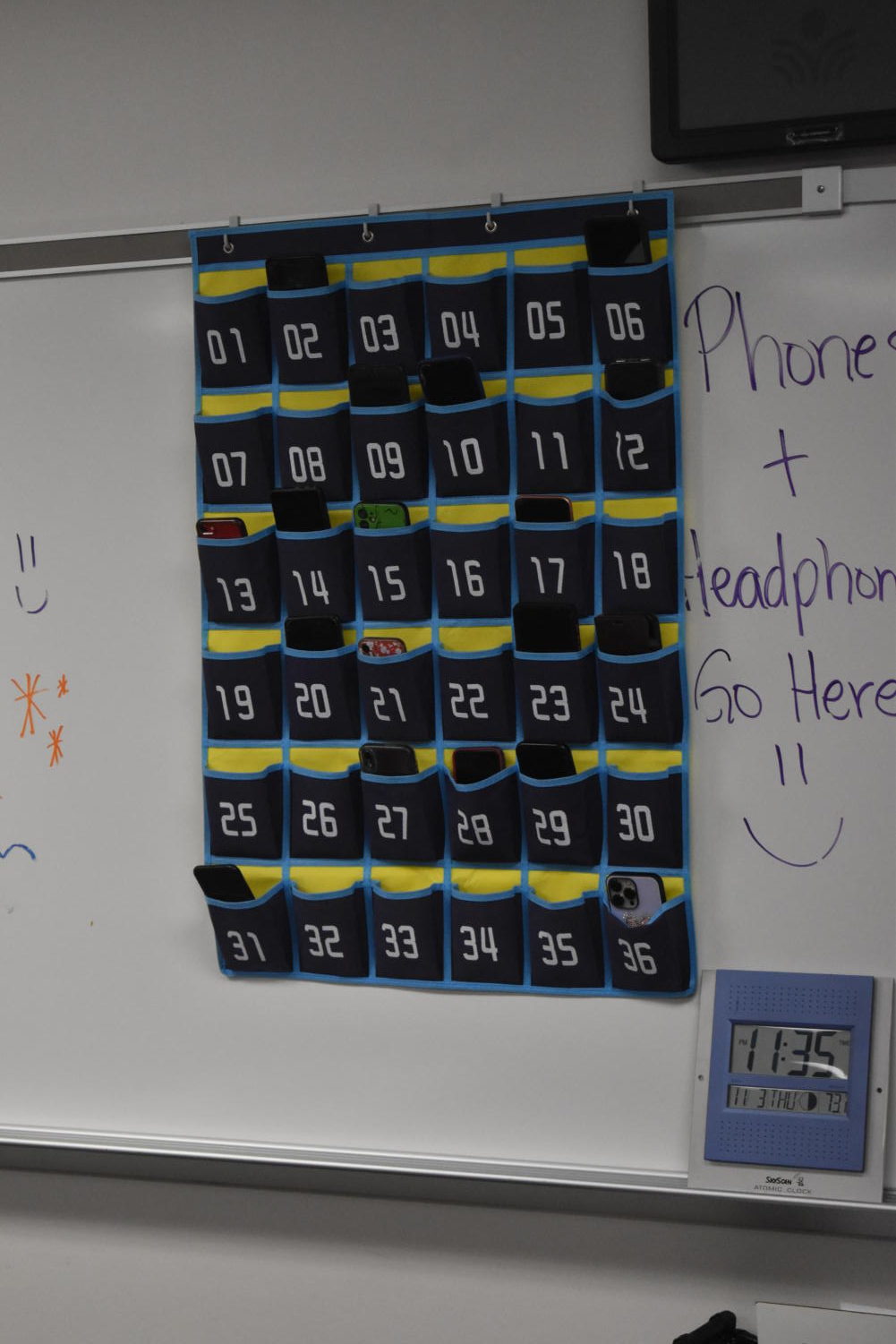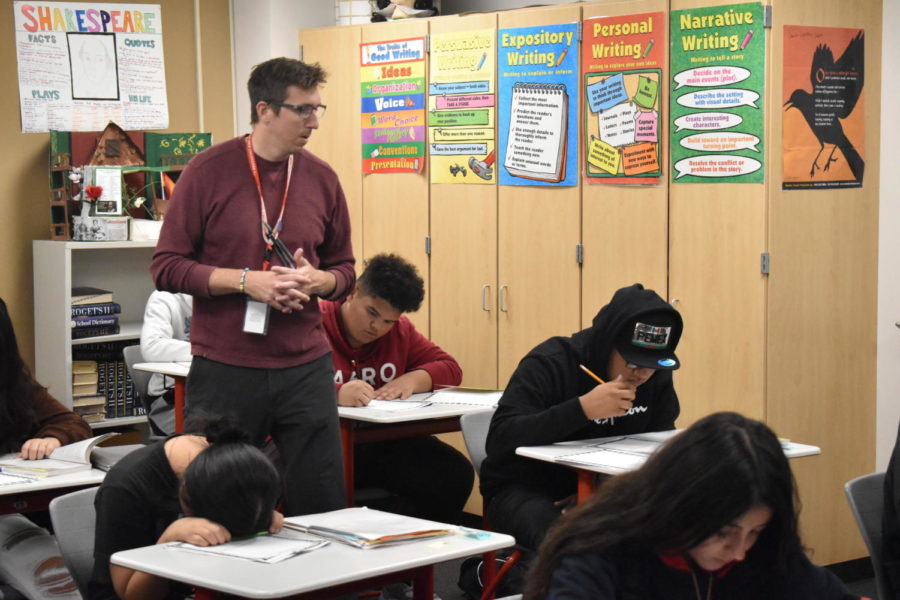Distractions on silent
SHS teachers implement no-phone policies into classrooms to promote better learning
English teacher Timothy Jamriska walks around his class to check on students on Nov. 3. His students had to put their phones away for class.
When going into math teacher Donna Bass’s room, students will find that their phones must be swapped with a calculator and sitting in a shoe organizer, for the entire class period. Mrs. Bass started this policy eight years ago, and it’s still going on strong.
“I started it when I started seeing what a problem it was, having phones in the classroom,” Bass said.
In an attempt to keep students on task and earn good grades, more teachers are implementing no-phone policies in their classrooms, while some, like Bass, have been doing it for years. Although students may not be eager about this growing policy, they keep their opinions amongst themselves and know that it’ll be easier to follow instruction.

The reason that various teachers make kids put their phones away isn’t out of spite or hate, but instead to help them stay on task and in hopes that the students have a better environment to understand material. In classes such as math, being tuned out for just a few seconds can put a student behind for the entirety of the unit. When there’s no phone to distract them, students are left to comply and pay attention to the lesson.
“Kids are forced to be engaged. If they’re not, then they put their head down and try to sleep. I just keep poking them,” English teacher Timothy Jamriska said. “Eventually, they learn that it’s a little bit easier to try.”
Jamriska, similar to Bass, has a no-phone policy and noticed a difference in grades when kids are forced to try. For example, kids have gone from B’s to A’s and from C’s to B’s.
Benefits aren’t only seen academically but also socially. When phones are put away, it leaves little room for drama to thrive and decreases behavioral problems. Instead of having to tell a student to put their phone away a couple dozen times and distracting more students, students have to either follow the rule or get written up in Mr. Jamriska’s class.
Spanish teacher Jamie Marshall has had students keep their phones out of sight since she began teaching. She mentions that in her class, she wants students to disconnect and think freely with no distractions.
“The phone is so often used as a crutch. I feel like not having that encourages you to think and explore and imagine,” Marshall said. “I just think it’s so much healthier for your learning and your brain and your emotional health too.”
Marshall finds more engagement and attention being paid to the lesson when the distractions are all away.
While students were in shock and didn’t see the point of having to put their devices away at first, Bass, Jamriska and Marshall have noticed it’s more of a routine by now, with very little defiance against the rule this deep in the school year.
Yes, some students still may grumble when they enter these teacher’s classes, remembering that they have to put their phone up, but in these classes, it’s an everyday thing. Every once in a while, however, the phone is used as a reward for following along with lessons. If it’s independent working time, students may be allowed to listen to music to help get work done.
“Sometimes when they have work time, to be working on something, like ‘Alright work for about 10 minutes, if you’re working on something I’ll let you know if you can get your phone or not,” Jamriska said.
 If those students take advantage of getting the privilege to have some free time, the phones go right back in the cubbies and schoolwork is taken back out.
If those students take advantage of getting the privilege to have some free time, the phones go right back in the cubbies and schoolwork is taken back out.
Only a small portion of classes at SHS require phones to be put away for the period, but the teachers that enforce them think it would be beneficial for the entire school if every class required phones to be put away.
“I don’t expect anything of my students that I don’t expect of myself,” Marshall said. “I’m giving you 100% of my focus and attention in the time that you’re in my classroom, so I expect the same.”

Hey! I’m Julianna Miranda and this is my second year on The Journal! This time I have come back as the Opinion Editor. I feel like this is a perfect...









